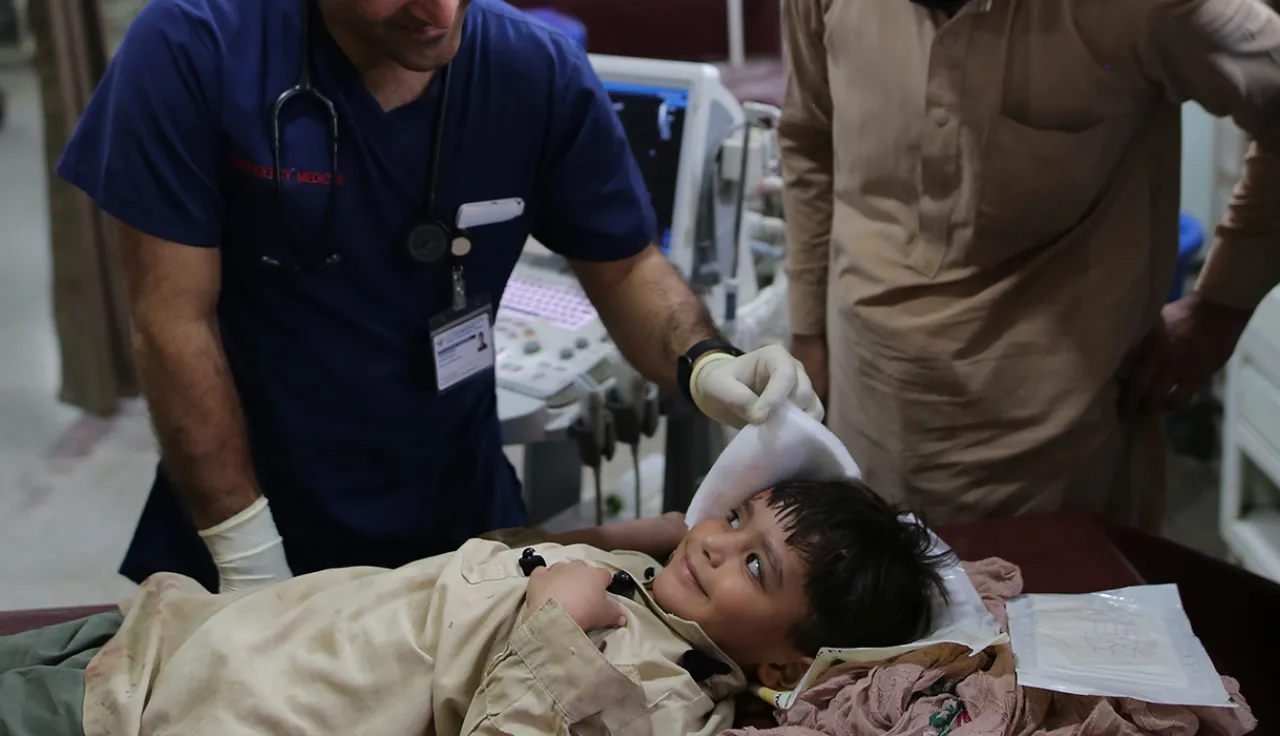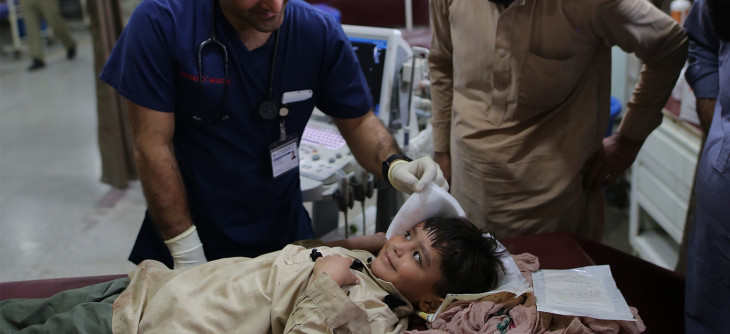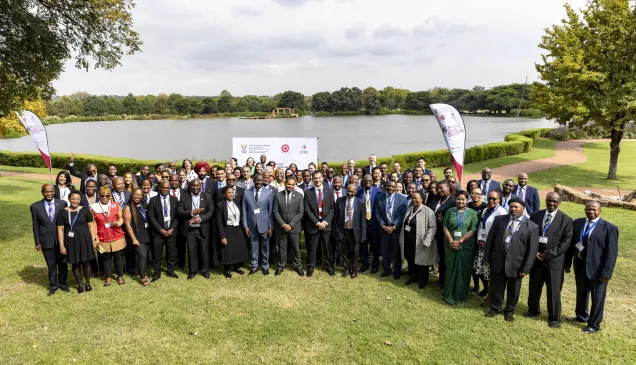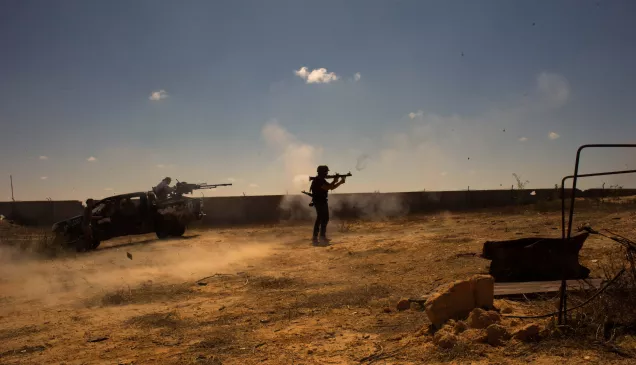Pakistan: New law to prevent violence against health-care workers, facilities and patients in Khyber Pakhtunkhwa

The International Committee of the Red Cross (ICRC) has been working tirelessly to address the issue of violence against health-care workers, health-care facilities, medical transport and patients in Pakistan by promoting evidence-based initiatives in collaboration with government health departments, leading universities and public hospitals.
The persistent and committed efforts of the Health Department, Khyber Pakhtunkhwa (KP) and the ICRC towards the protection of health care in KP have resulted in a new law: The Khyber Pakhtunkhwa Healthcare Service Providers and Facilities (Prevention of Violence and Damage to Property) Act, 2020.
A review of the legal framework safeguarding health care in KP (conducted jointly by the Health Department, KP and the ICRC) and the recommendations from a series of consultations with relevant stakeholders (including doctors, paramedics, nurses, legal experts and civil society organizations) were key to the development of this new law.
The Khyber Pakhtunkhwa Healthcare Service Providers and Facilities (Prevention of Violence and Damage to Property) Act, 2020 is a significant achievement towards increasing the protection of health care in KP, including the merged districts of the erstwhile Federally Administered Tribal Area or FATA region.
The Act seeks to ensure the protection and security of health-care workers and institutions; prevent violence against health-care personnel, patients and their attendants; prevent damage or loss to property and equipment in health-care facilities, and ensure uninterrupted provision of health-care services.
It also broadens the relevant legal definitions to offer protection to health-care workers across various cadres and health-care settings (including private and public sectors, as well as affording protection to health-care workers inside health-care facilities and in the field).
The Act further prohibits the obstruction and disruption of health-care services, the entry of unauthorized weapons inside health-care facilities and elaborates the responsibilities of health-care workers and facilities to protect the rights of patients and their attendants.
Violence against health-care workers and facilities is preventable and the ICRC is committed to finding ways to prevent and improve the protection of health-care services during armed conflict or other emergencies.
In addition to gathering and analysing data on violence against health care to inform evidence-based decisions and policies, the ICRC has also been working with health-care workers and medical facilities in Pakistan to raise awareness on the issue and to promote respect for health care in the general community.

A doctor and patient smile at each other during examination at Lady Reading Hospital's emergency department in Peshawar. / ICRC
Building partnerships and rallying a community of concern are central to the success of the ICRC's response to violence against health care in the country. In 2018, the ICRC and its partners in the Health Care in Danger (HCiD) initiative successfully advocated with the authorities in Sindh province to make amendments to the Sindh Provincial Motor Vehicles Ordinance to ensure the right of way for ambulances and other emergency vehicles in traffic.
This was a landmark achievement in the progress towards the protection of health care in the country.
We hope that the Khyber Pakhtunkhwa Healthcare Service Providers and Facilities (Prevention of Violence and Damage to Property) Act, 2020 will strengthen advocacy efforts with the authorities of the other provinces of Pakistan. The ICRC and its partners in the HCiD initiative are working towards the enactment of a similar law in Sindh province where the process of legislative approval of the new law is currently underway.



